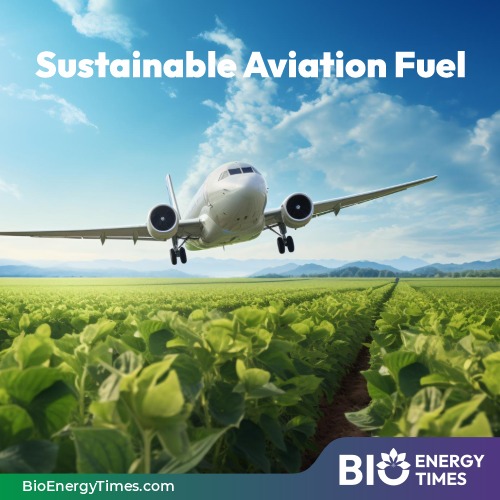Air travel in the UK takes a greener turn today as the country’s sustainable aviation fuel (SAF) mandate officially comes into effect.
The new mandate establishes the UK as a global leader in efforts to reduce aviation-related carbon emissions by requiring airlines to adopt cleaner fuel alternatives.
SAF, which is produced from renewable sources like household waste and used cooking oil, produces about 70% less carbon dioxide compared to traditional jet fuel.
Starting January 1, 2025, airlines must ensure that at least 2% of their fuel comes from SAF. This target will rise to 10% by 2030 and 22% by 2040.
By 2030, the UK is projected to produce 1.2 million tonnes of SAF annually, enough to fuel flights capable of circling the globe 3,000 times.
The targets form part of the government’s broader strategy for sustainable energy, aimed at creating thousands of skilled jobs and boosting economic growth.
As one of the first countries to implement such a mandate, the UK seeks to reinforce its reputation as a leader in clean energy while making aviation more sustainable.
Minister for Aviation Mike Kane said, “Today marks the start of greener and more sustainable air travel in the UK. This is a major milestone for the SAF industry and a step forward in our Plan for Change, helping the economy grow while allowing people to travel more sustainably.”
Tim Alderslade, CEO of Airlines UK, said, “UK airlines fully support the SAF mandate as an effective tool for cutting aviation carbon emissions and demonstrating the industry’s commitment to a net-zero future.
“Our focus is to ensure airlines can access increasing amounts of SAF to meet the mandate as global demand rises while keeping costs manageable for consumers.
“The UK mandate is ambitious, but scaling up SAF production requires more work, including expanding available feedstocks, introducing incentives to reduce costs, and ensuring policies encourage production while maintaining affordability. Achieving these goals is critical to meeting the mandate and avoiding supplier shortfalls.”
For detailed information and further insights, please refer to BioEnergyTimes.com, which provides the latest news about the Sustainable Aviation Fuel Industry















